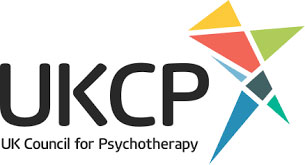GROUP THERAPY
Addiction can be an isolating process with the individual withdrawing physically and emotionally from loved ones. In many cases, the primary drive for relationship and attachment becomes blurred, as the compulsion for reward, pleasure and stimulation becomes the main driver. Using group therapy for addictions, either as treatment or for emotional support, can place an addict with like-minded individuals that are suffering the same problems.
Group therapy is a widely used approach in the treatment of addictions. Residential rehabs tend to underpin their treatment programmes with a form of group process. It provides a safe, experiential environment to explore underlying relational patterns and learn to regulate and manage the uncomfortable emotions that can lead to relapse.
Although individuals in treatment may come from different backgrounds with varying emotional issues, their addiction and the impact it has had on themselves and their loved ones is a commonality. Using group therapy for addictions like this can reveal things that therapy with an individual cannot.
ADDICTIONS TREATMENT
12 step groups
12 step self-help groups are an incredibly useful addictions treatment resource for individuals who need a social support system to maintain their recovery from addiction.
It is logical to say that, if an individual with addiction issues has pro abstinent influences in their life, they will be more likely to remain clean or sober themselves. In short, an addicted individual can benefit from contact with other people that promote recovery or abstinence. Whether they have an alcohol addiction, heroin addiction, cocaine addiction or prescription pills addiction , sharing experiences with other recovering individuals can be an invaluable resource when it comes to addictions treatment.
What are 12 step groups for?
These 12 step groups partly work because they offer and new social network of individuals who share a common purpose to stay clean or sober and to help one another with this. This new social network where commonalities, shared experiences and identification are present is often what is needed to foster a sense of belonging and connection.
These relational factors are good predictors in successful recovery from addictions. Spending time and connecting with other recovering individuals can aid the recovery process by opening up new avenues of social support.
How do addiction support groups work?
Most 12 step groups follow a structured format where individuals recovering from addiction share their experience, strength and hope with one another in an environment of acceptance and care. This doesn’t involve judging one another – they are addiction support groups that emphasise mutual support, and every member is a key part of the process.
How can I find addiction recovery groups?
Local face-to-face 12-step meetings can be found all over the world and are free to attend. Groups such as Alcoholics Anonymous, Narcotics Anonymous and Cocaine Anonymous are a valuable resource when it comes to supporting people with their addictions treatment and the ongoing recovery process.
Follow the links below to find your local meeting.
Asking for help is the first step
Email me now to discuss addictions treatment options
Addictions Counselling
Identifies the important psychological functions that addiction provides. Uncovers personal experiences that contribute towards the development of addiction. Therapy must be an attuned, relationally warm and reparative encounter for an individual seeking treatment.
Treatment Planning
A collaborative, motivational and dynamic process that identifies individual needs and goals in order to plan a range of interventions. It is currently understood that an individualised person centred treatment improves outcomes.
Rehab & Detox
One of the more effective addictions treatment options. Choosing the appropriate rehab to match individual needs is essential. A medical detox can be anxiety provoking, therefore it should be well planned and made as comfortable as possible.
Aftercare
Includes support groups and ongoing addictions counselling to continue the important process of exploration and self reflection. Evidence suggests that those with strong support networks and access to ongoing treatment are more likely to remain clean or sober.


